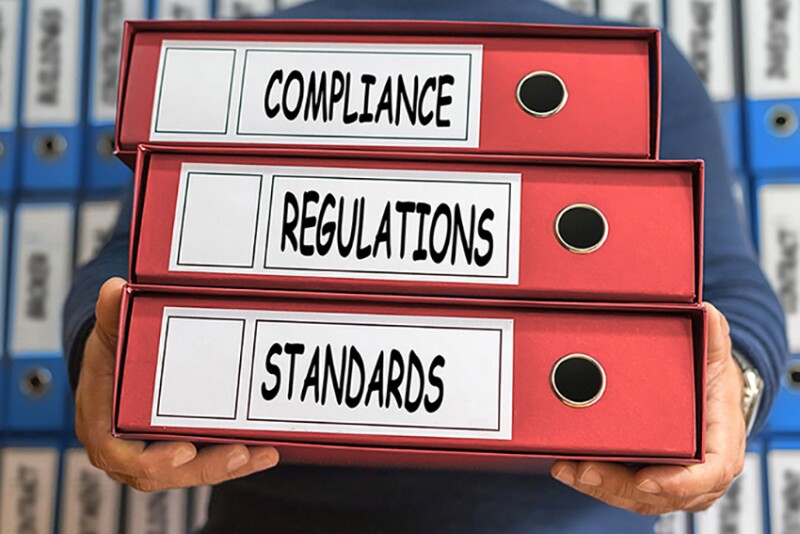I do not think a drilling rig derrick hand thinks twice about adding another 30 ft of pipe to the drillstring and not having the two ends of the pipe fit together snuggly. Even a robotic pipe-handling system depends on the physical pipe standard. Yes, there is a standard for that. There is a standard called API 5L that helps drilling companies buy the right kind of pipe to align with the drilling plan for the well. But what about the data manager who is trying to load a new logging curve into their petrophysics database. Will the curve names match their internal naming standard? Maybe, maybe not.
What are the benefits of standardization? Here are some thoughts.
- Improves clarity—because a standard process will eliminate the need for guesswork or individual interpretation.
- Guarantees quality—because work is done in a predefined, optimized way.
- Promotes productivity—because users will not need to comb documentation to get answers.
We have been talking about data standards in the oil and gas industry at least as far back as 1988 when a group of petroleum industry players and data experts joined forces and in 1991 created the Public Petroleum Data Model Association, now called the PPDM Association. They recognized the need for petroleum data standards and have produced some good products, but our data manager still has problems.
I was lucky enough (there is some sarcasm in that phrase) to work with a group of data standards organizations which about 10 years ago tried to get together and find the areas where they could collaborate on what you would think to be simple problems like a common way to name wells, to name well log curves, to have standard for units of measure … and the list goes on and on. But that was harder than you think. There were about a dozen standards groups interested in this collaboration including Energistics (formerly the Petrochemical Open Standards Consortium), PODS (Pipeline Open Data Standard Association), POSC Caesar Association (interoperability between systems and players in the process and energy industry), and MIMOSA (operations and maintenance).
The oil and gas industry does not lack standards; in fact, it probably has too many of them which leads to the real problem that most operators, service companies, and tech companies just don’t implement the data standards that apply. If that happened in the pipe-manufacturing business, a company would go out of business. But in our business, it is called innovation. Strange, somehow, why it has happened that way.
Corporations have worked hard at building a top-down alignment with strategic goals and objectives. The field superintendent and lease operator should be able to see their actions reflected in the corporate annual performance report to shareholders, but can they see their activities reflected in the corporate sustainability reports?
My point here is not to revisit the old standards arguments from subsurface, seismic, and well-related data but to bring up a new area where standards, if adopted, would play a valuable role. That area is verifying greenhouse gas, or more specifically methane emissions. The industry and the regulators (EPA, State of Colorado, New Mexico, and Alberta, etc.) are moving towards more measurement-informed inventory reports.
Data are starting to matter and to become more available and affordable (and more accurate as well). So, if you want to verify that your data are accurate (or as best as the emerging technology allows), you need a third party to audit the inventory submission. To audit, you need a standard to audit against.
That seems logical, doesn’t it?
So, what standard should we be using? Again, there is not a lack of standards for this application but an abundance of them. Take OGMP 2.0 (Oil and Gas Methane Partnership from the United Nations Environmental Programme), the MiQ protocol from the Rocky Mountain Institute, and just being published is the Veritas protocol from GTI Energy. All three are good frameworks but each has its specific focus. Then you can add Trustwell from Project Canary and another framework from Equitable Origin. Take your pick. Everyone likes a standard if it is theirs.
The purpose of many of these schemes is to develop a set of protocols and methodologies, not to develop a certification scheme. The volunteer experts that develop these standards have a purpose in mind. That is the good news. The not very good news is that if a new initiative gets started and their purpose doesn’t align with existing ones, then the temptation is to develop yet another standard.
At a higher level there are even more standards reflecting a more strategic perspective of sustainability reporting. Take for example the CSRD (Corporate Sustainability Reporting Directive), the GRI (Global Reporting Initiative), and the ISSB (International Sustainability Standards Board). Above each of these is the United Nations Sustainable Development Performance Indicators (SDPI).
I am not kidding; all these efforts have been proposed by well-intentioned expert panels to help align our work to reach ambitious objectives of net zero. But is it working? Can you navigate through this alphabet soup of standards organizations to align your company’s efforts from field operations to corporate sustainability reports to investors and stakeholders?
No one ever said that developing and adopting a standard definition, protocol, or business practice was easy. Thankfully, the folks that brought us XML (Extensible Markup Language) and API 5L were reasonably successful.
Appropriate data standards do not restrict creativity and innovation, they enable it. Being a little cynical, I guess we just do not value clarity, quality, or productivity over empowerment to do things our own way. “Why can’t we all just get along?”
Editor’s Note: This article was republished with permission from the SPE Data Science and Engineering Analytics Technical Section June 2023 newsletter.


